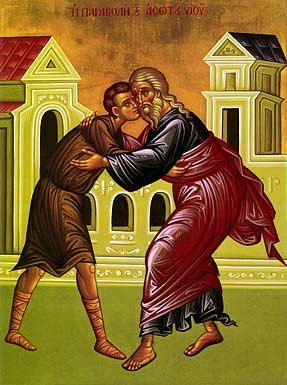 The two readings for this weekend are powerful in their message. Our Epistle is taken from Paul’s second letter to the Corinthians. Paul asks his readers this very poignant question: Do you not know that your body is a temple of the holy Spirit within you, whom you have from God, and that you are not your own? Paul then makes this statement: For you have been purchased at a price. Therefore glorify God in your body.
The two readings for this weekend are powerful in their message. Our Epistle is taken from Paul’s second letter to the Corinthians. Paul asks his readers this very poignant question: Do you not know that your body is a temple of the holy Spirit within you, whom you have from God, and that you are not your own? Paul then makes this statement: For you have been purchased at a price. Therefore glorify God in your body.
Why did Paul write this to the Church he founded in Corinth? He wrote this because he had received word that members of the community were not living up to how he told them Jesus taught them to live, namely a moderate, virtuous life. In fact his letter was rather pointed in condemning how many were living.
Paul clearly connects the Jesus WAY with how one lives. Think about it. What does it mean to you that YOU are the temple of God’s Spirit? That very thought should cause a person to try and live a virtuous life.
Our Gospel reading is, perhaps, one of the most moving of all of Jesus’ parables. I suspect that there is no one who, hearing this parable, isn’t touched almost to tears. I believe that all of us have found, at some point in our early lives, ourselves “rehearsing” something to say to our fathers after we have done something stupid. And I suspect all of us have experienced, or wished we could have experienced, the father’s response to our rehearsed apology. It is so touching.
And then again, I suspect that those who have siblings probably can relate to the older brother’s response to the father’s loving kindness and forgiveness. Too often sibling rivalry, especially during early childhood, causes one sibling to question if a parent is too lenient.
So this parable seems to have the power to touch so many people for so many different reasons.
I further think that this parable also challenges our ideas about God, who is seen in the person of the father in this parable. What kind of God is our God? If God is merciful, will humankind just take advantage of His love and choose not to lead a virtuous life? Is the threat of punishment the only stimulus that can cause people to lead virtuous lives?
To me these readings present a powerful message and a different approach to religion. It is based on the premise that if we truly understand who we are in God’s creation, we will freely choose to lead virtuous lives to bring the Father glory. Why do you choose to lead a virtuous life? Knowing of God’s unconditional love, how do you choose to live?
